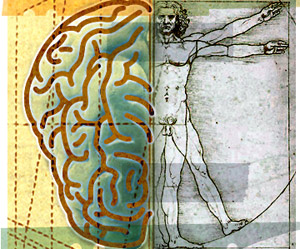
More evidence that low-calorie sweeteners are bad for your health
Studies show that artificial sweeteners can raise the risk of hypertension, metabolic syndrome, type 2 diabetes and heart disease, including stroke.

As we are all winding down – or trying to – for the holidays it’s a good time to reflect on health and well-being and what those words actually mean.
Achieving “good health” is now one of the single biggest preoccupations in modern society.
But what exactly is “good health”? In typical Western fashion we appear to be pursing something without giving much thought to what it is, what it represents in our lives and how it is best achieved.
Fifty years ago scientists at the World Health Organization attempted their own definition.
Health, they said, was a “state of complete physical, mental and social well-being”. Given that this all-encompassing state of wholeness is difficult to achieve, this definition was met with mixed reactions from health professionals. In fact, one physician is reputed to have retorted at the time that the only people he had known who were in that state were either manic or about to have a heart attack!
For years many conventional physicians scoffed at the idea that our mental state could influence the course of health and disease. But these days we know better; many bodily symptoms are the result of, or can be worsened by, a poor emotional state.
It’s not just a question of stress, either, but of the whole tapestry of human experiences and emotions which influence our levels of health.
For example, medicine has yet to convincingly answer the question of what causes heart failure. The risk factors that are commonly highlighted such as smoking, obesity, a sedentary lifestyle and a high fat diet at best account for only half of all heart disease. Indeed the influence of the latter has taken something of a beating recently.
To find the other half we must look to sociology and psychology.
Most recently a new study from the University of Michigan found that a bad marriage could literally break your heart – especially if you are a woman.
Large studies over a number of years, in places as diverse as San Francisco and eastern Finland, have observed that those who are lonely and socially isolated are 2 to 3 times more likely to die from heart disease (and other causes) than those who feel connected to others.
The inference is profound – some heart attack victims may, quite literally, be dying of a broken heart.
Other recent studies have looked at the connection between depression and heart disease, as well as stroke, and between anxiety and stroke. Likewise social isolation has been linked to a greater risk of premature death from all causes.
New studies appear all the time to confirm this mind-body connection, sometimes at the deepest biological levels.
In another recent study a team of UK and US researchers carried out a study to examine the relationship between certain personality traits and immunity. Personality, of course, is an extension of our mental, emotional and social states.
The results indicated that ‘extraversion’ was significantly associated with an increased expression of pro-inflammatory genes and that ‘conscientiousness’ was linked to a reduced expression of pro-inflammatory genes.
In other words, individuals who we would expect to be exposed to more infections as a result of their socially orientated nature (i.e. extraverts) appear to have stronger immune systems.
Taking ideas such as this on board can take a great deal of courage as it can change your view of yourself and the world dramatically. But it may also provide the one thing that always seems to be missing from medical diagnosis – insight into why we sometimes get ill when we do or in the ways that we do.
At the same it paves the way towards acceptance of the mounting evidence of the effectiveness of mind/body therapies and the real contribution that mindfulness makes to, amongst other things, immunity, hypertension, dementia and even relationships and our overall our well-being.
Here’s wishing you all a healthy, happy and mindful holiday season and 2015 and beyond.
Pat Thomas, Editor
A .pdf version of this newsletter is available here.

Please subscribe me to your newsletter mailing list. I have read the
privacy statement